Discover Templeton Ideas Podcast
Templeton Ideas Podcast

Templeton Ideas Podcast
Author: John Templeton Foundation
Subscribed: 210,682Played: 587,237Subscribe
Share
© 2025
Description
The Templeton Ideas Podcast is a show about the most awe-inspiring ideas in our world and the people who investigate them. We sit down with thinkers like Gretchen Rubin, Ethan Kross, and David Brooks to explore how their work has transformed their lives — and how it may transform yours. These thoughtful conversations will take listeners on a journey through psychology, philosophy, physics, and more.
The Templeton Ideas Podcast is a project of the John Templeton Foundation.
The Templeton Ideas Podcast is a project of the John Templeton Foundation.
75 Episodes
Reverse
Olga Khazan is an author and staff writer at The Atlantic, where she publishes stories on health, social science, psychology, and other thought-provoking topics. In 2020, she published her first book, Weird: The Power of Being an Outsider in an Insider World, which draws on her experiences as both an immigrant and a natural introvert. Olga's latest book, Me, But Better: The Science and Promise of Personality Change, chronicles her year-long personal experiment to reshape her personality. Olga joins the podcast to discuss how she intentionally became more extroverted and how becoming a parent can change our personalities. Does being a parent make you miserable, happy, or is that the wrong question entirely? Explore these ideas, and more, in an essay by psychologist Kendra Thomas entitled "Parenting is About Hope, Not Happiness." Join our growing community of 140,000+ listeners and be notified of new episodes of Templeton Ideas. Subscribe today. Follow us on social media: Twitter, Facebook, Instagram, LinkedIn and YouTube.
Jason Marsh is the executive director of the Greater Good Science Center at UC-Berkeley. Greater Good is committed to sharing science-based insights with educators, parents, and other professionals to foster meaningful lives and a thriving society. In recent years, Greater Good has received grants from the John Templeton Foundation to engage and promote virtues such as intellectual humility and love. He joins the podcast to discuss their research and how your life can be improved by practicing intellectual humility. At their best, holidays fill us with hope, wonder, generosity, love, and joy. But what is joy, really, and can we experience it even when life is turbulent and tough going? To learn more, check out Alene Dawson's Templeton Ideas essay Unwrapping the Science of Joy. Join our growing community of 200,000+ listeners and be notified of new episodes of Templeton Ideas. Subscribe today. Follow us on social media: Twitter, Facebook, Instagram, LinkedIn , and YouTube.
Colin Allen is a professor of philosophy at the University of California, Santa Barbara, where he specializes in cognitive science, particularly animal cognition and artificial intelligence. Among his many publications, Colin has authored books such as Moral Machines: Teaching Robots Right From Wrong. In his efforts to study diverse intelligences, Colin received Templeton funding for a project called "Joyful by Nature," which explores the evolution and function of joy in various animals. Colin joins the podcast to discuss the research behind animal emotion and behavior. When it comes to animal emotions, no person stands out more than the naturalist Jane Goodall; Jane dedicated her life to studying the lives of primates and advocating for their dignity. To learn more about how Jane saw the world and our place in it, we invite you to watch a short video in honor of her winning the Templeton Prize. Join our growing community of 200,000+ listeners and be notified of new episodes of Templeton Ideas. Subscribe today. Follow us on social media: Twitter, Facebook, Instagram, LinkedIn , and YouTube.
Vera is a professor of Physics and Astronomy at the University of Southern California. As a cosmologist, she studies the entire universe as a physical system. In doing so, she explores the nature of dark matter, dark energy, and the birth of the universe. Vera is the project leader of a new $4M grant from the John Templeton Foundation that will bring together astrophysicists, computer scientists, artists, and philosophers in a new research hub to explore the nature of dark matter and the early universe. She joins the podcast to discuss dark matter, collaboration among scientists, observatories, and more. What are the strangest objects in the universe? It's almost certainly black holes, objects that are so powerful that even light cannot escape them. To learn more, check out our podcast episode with Shep Doelman, whose team produced the first-ever images of a black hole. Join our growing community of 200,000+ listeners and be notified of new episodes of Templeton Ideas. Subscribe today. Follow us on social media: Twitter, Facebook, Instagram, LinkedIn , and YouTube.
Timothy Dalrymple is the new president of the John Templeton Foundation. Before assuming this role, he served as CEO of Christianity Today. Tim has led several innovative media ventures and worked closely with writers, scholars, and philanthropists to elevate ideas that enrich public life. A former national champion gymnast turned philosopher of religion, he holds degrees from Stanford, Princeton Theological Seminary, and Harvard, where his doctoral work focused on the nature of suffering and religious knowledge. He joins to podcast to discuss his history, transition to the role as president, and hopes for the future. What inspires you to travel? Could you design a journey around the experience of awe? To learn more, we invite you to read Alene Dawson's Templeton Ideas essay, The Awe-Seeker's Guide to Travel. Join our growing community of 200,000+ listeners and be notified of new episodes of Templeton Ideas. Subscribe today.
David Goyer is a screenwriter, director, and producer best known for his role in films like Blade, Batman Begins, and The Dark Knight trilogy, in which he redefined superhero storytelling. Goyer has also brought Isaac Asimov's iconic Foundation novels to television and introduced science-infused, thought-provoking narratives to the big screen. With decades of experience in Hollywood, he continues to push the boundaries of storytelling. Goyer joins the podcast to discuss the fine line between being a hero and being a villain. At a recent event in Los Angeles called "A Night of Awe & Wonder," David spoke about his origin story and how awe invites us to "look for connections in the most unlikely places." Read about the event here. Join our growing community of 200,000+ listeners and be notified of new episodes of Templeton Ideas. Subscribe today.
Kelly is the author of four New York Times bestselling memoirs, including Glitter and Glue, Lift, and The Middle Place, which take ordinary events and relationships and make them come alive in funny, memorable prose. Kelly hosts the podcast "Kelly Corrigan Wonders," and the PBS television show "Tell Me More", which have received grants from the John Templeton Foundation. She has also given a popular TED talk entitled "To Love is to Be Brave". Most recently, she co-authored a children's book with her daughter Claire called Marianne the Maker. She joins the podcast to discuss faith, family, and staying open to wonder. How does caregiving contribute to a meaningful life? Listen to a Templeton Ideas episode with Dr. Alison Gopnik, who discusses the flaws in our popular understanding of children and babies, the connection between children and awe. Join our growing community of 200,000+ listeners and be notified of new episodes of Templeton Ideas. Subscribe today.
Kwame Appiah is a professor of philosophy and law at New York University. Over his long career he has written about topics including political philosophy, ethics, literature, African and African-American studies. As the author of more than 20 books, his notable works include Cosmopolitanism: Ethics in a World of Strangers and The Honor Code: How Moral Revolutions Happen. His newest book, and the subject of our conversation today, is entitled Captive Gods: Religion and the Rise of Social Science. Kwame was also recently featured in an episode of Wisdom Keepers, a PBS show exploring life's fundamental questions. How do we express our religious commitments? Some may say faith, but this article proposes another idea. Learn what role hope plays in belief by reading Religious Commitment: A Hopeful Approach by Daniel Speak. Join our growing community of 200,000+ listeners and be notified of new episodes of Templeton Ideas. Subscribe today. Follow us on social media: Twitter, Facebook, Instagram, LinkedIn and YouTube.
Miroslav Volf is a theology professor and director of the Center for Faith and Culture at Yale University. His writing and teaching explore how Christian theology relates to culture, politics, and world religions. He has written and edited more than 20 books, including Life Worth Living: A Guide to What Matters Most. His newest book, which we will be discussing, is entitled The Cost of Ambition: How Striving to Be Better Than Others Makes Us Worse. He joins the podcast to discuss how striving for excellence is better than superiority. Want to learn more about striving? Listen to our insightful episode with Jennifer Wallace on "toxic achievement culture" from Season 2. Join our growing community of 200,000+ listeners and be notified of new episodes of Templeton Ideas. Subscribe today. Follow us on social media: Twitter, Facebook, Instagram, LinkedIn and YouTube.
Mark Moffett is an explorer, naturalist, and photographer who has traveled to more than a hundred countries to document new species in extremely remote places. He takes a special interest in insect societies, especially ants. Affectionately known as Dr. Bugs, Mark has published extensively in outlets like National Geographic and been a frequent guest on TV and Radio, including Stephen Colbert, Conan O'Brien, and RadioLab. Mark has also authored several popular books, including The Human Swarm, which explores what insect societies have in common with primates and humans. Mark joins the podcast to discuss insect and animal societies and how they relate to humans. "How can we build resilient communities amid myriad risks?" A study on cooperation sheds light on how we can use cooperation to address unavoidable risks. Read Cooperation—The Ancient Technology That Never Goes Obsolete. Join our growing community of 200,000+ listeners and be notified of new episodes of Templeton Ideas. Subscribe today. Follow us on social media: Twitter, Facebook, Instagram, LinkedIn and YouTube.
Kaitlin Yarnall is the Chief Storytelling Officer at the National Geographic Society, one of the largest funders of individual storytellers and journalists in the world. A cartographer by trade, Kaitlin travels the world helping NatGeo Explorers—exceptional individuals in their fields—share their work in science, exploration, and education with millions of people. She joins the podcast to discuss storytelling with impact, her partnership with the John Templeton Foundation, and the exciting initiatives being covered at the National Geographic Society. Curiosity is a powerful force for exploring and understanding the world, but we also know the old saying, "Curiosity killed the cat." How do we resolve this paradox? To learn more, read Curiosity Has Two Faces by Annelise Jolley. Join our growing community of 200,000+ listeners and be notified of new episodes of Templeton Ideas. Subscribe today. Follow us on social media: Twitter, Facebook, Instagram, LinkedIn and YouTube.
Simran Jeet Singh is a professor of religious history at Union Theological Seminary in New York City. He is also a senior advisor at the Aspen Institute and host of the podcast Wisdom & Practice. Simran is the author of three books, including The Light We Give: How Sikh Wisdom Can Transform Your Life, which introduces readers to the religious tradition of Sikhism and its practical relevance for all of us today. Simran joins the podcast to share the history, beliefs, and practices of the Sikh faith. How do the people of India feel about other faiths? A survey shows interesting findings about the beliefs and perspectives of those who live near each other, yet belong to different religions. Read the survey results in India's Patchwork Pluralism. Join our growing community of 200,000+ listeners and be notified of new episodes of Templeton Ideas. Subscribe today. Follow us on social media: Twitter, Facebook, Instagram, LinkedIn and YouTube.
David Bentley Hart is a scholar with wide-ranging interests in philosophy, theology, religions, and culture. He is the author of hundreds of literary essays and more than twenty books. Our conversation today focuses on two in particular; the first is The Experience of God: Being, Consciousness, and Bliss; and the second is David's most recent work entitled All Things Are Full of Gods: The Mysteries of Mind and Life. This book is playfully written in the form of a Platonic dialogue in which the characters explore questions of ultimate reality. David is also an avid fan of baseball, a subject that he eloquently praises in his popular essay "A Perfect Game". Can we actually see the divine in nature? Or do we project meaning onto reality? Learn how to tell the difference in On Seeing Divinity in The World: Ultrasound Scans and The Canals of Mars by Stephen Law. Join our growing community of 200,000+ listeners and be notified of new episodes of Templeton Ideas. Subscribe today. Follow us on social media: Twitter, Facebook, Instagram, LinkedIn and YouTube.
Heather is the President and CEO of the John Templeton Foundation, one of the world's largest funders of research at the intersection of science, philosophy, and faith. Over the past decade, she has helped broaden the Foundation's global reach while championing topics such as intellectual humility, the psychology of purpose, and human flourishing. She is also the granddaughter of Sir John Templeton, whose legacy continues to shape the Foundation's mission. Learn more about Heather's key takeaways and initiatives in her article A Reflection on My Presidency of the John Templeton Foundation. Join our growing community of 140,000+ listeners and be notified of new episodes of Templeton Ideas. Subscribe today. Follow us on social media: Twitter, Facebook, Instagram, LinkedIn and YouTube.
Agnes is a philosophy professor at the University of Chicago, where she specializes in ancient philosophy and ethics. Her early studies instilled in her a deep fascination with Socrates, which ultimately led to the publication of her newest book, Open Socrates: The Case for a Philosophical Life. In addition to her scholarly work, she also writes for popular outlets like The New Yorker, the Atlantic, New York Times, and Harpers. How can we "navigate a technical revolution" in an ever-evolving world? Read A Meaningful Life in the Age of AI by Richard Lopez to learn how to balance appreciation and practice of AI. Join our growing community of 140,000+ listeners and be notified of new episodes of Templeton Ideas. Subscribe today. Follow us on social media: Twitter, Facebook, Instagram, LinkedIn and YouTube.
Robin is a British anthropologist and professor with a special interest in primate behavior and evolution. He is perhaps best known for formulating "Dunbar's Number", which states that among humans, there is an upper limit of about 150 people with whom we can maintain stable social relationships. Among his many books, he recently published How Religion Evolved And Why It Endures, in which he explores the deep history of human spirituality and its expression in both small-scale and large-scale societies. He joins the podcast to discuss the origins of religion and religion's purpose in our societies. "Science is known for progress and change; religion is less so." Learn how science and fascination are being used to teach monks and nuns in An Experiment to Enhance the Tibetan Monastic Tradition by Drew Rick-Miller. Join our growing community of 140,000+ listeners and be notified of new episodes of Templeton Ideas. Subscribe today. Follow us on social media: Twitter, Facebook, Instagram, LinkedIn and YouTube.
Dr. Centola is a professor of communication, sociology, and engineering at the University of Pennsylvania. His research focuses on how ideas transmit and transform societies through network theory and behavior change. He has explored these ideas in two popular books: How Behavior Spreads: The Science of Complex Contagions and Change: How to Make Big Things Happen. Damon joins the podcast to discuss the most effective approaches to social and behavior change. Why is it so difficult to make meaningful, positive changes in our personal lives that last more than a few weeks? Explore this question in our essay by Alene Dawson, "Can people really change? Yes. Here's how." Join our growing community of 140,000+ listeners and be notified of new episodes of Templeton Ideas. Subscribe today. Follow us on social media: Twitter, Facebook, Instagram, LinkedIn and YouTube.
David Brooks is a political and cultural commentator who has written an Opinion column for the New York Times for two decades. His essays have appeared in The New Yorker, The Atlantic, the Washington Post, and more. He is also the author of several books, including The Social Animal, The Road to Character, and The Second Mountain: The Quest for a Moral Life. David's newest book, How to Know a Person is a practical guide to fostering deeper connections at home, work, and throughout our lives. David joins the podcast to discuss the social and relational crisis in our society, why it's better to be an illuminator than a diminisher, and his practical advice on how we can become better people. Producer's note: This special episode was originally published in the early days of the Templeton Ideas podcast in November 2023. We hope you enjoy it. Join our growing community of 140,000+ listeners and be notified of new episodes of Templeton Ideas. Subscribe today. Follow us on social media: Twitter, Facebook, Instagram, LinkedIn and YouTube.
Olga Khazan is an author and staff writer at The Atlantic, where she publishes stories on health, social science, psychology, and other thought-provoking topics. In 2020, she published her first book, Weird: The Power of Being an Outsider in an Insider World, which draws on her experiences as both an immigrant and a natural introvert. Olga's latest book, Me, But Better: The Science and Promise of Personality Change, chronicles her year-long personal experiment to reshape her personality. Olga joins the podcast to discuss how she intentionally became more extroverted and how becoming a parent can change our personalities. Does being a parent make you miserable, happy, or is that the wrong question entirely? Explore these ideas and more in an essay by psychologist Kendra Thomas entitled "Parenting is About Hope, Not Happiness." Join our growing community of 140,000+ listeners and be notified of new episodes of Templeton Ideas. Subscribe today. Follow us on social media: Twitter, Facebook, Instagram, LinkedIn and YouTube.
Ross Douthat is a New York Times columnist who writes about religion, society, and moral values. He is also the author of several thought-provoking books, including Bad Religion: How We Became a Nation of Heretics, and a memoir of his personal struggle with a debilitating sickness, The Deep Places: A Memoir of Illness and Discovery. His latest book is Believe: Why Everyone Should Be Religious. Ross joins the podcast to discuss how decadence is shaping society and whether religion has a vibrant future. Why do so many people pray? Does it really work? And if so, in what way? Explore these questions and more in an essay by psychologist Frank Fincham, "What Can Science Say About the Study of Prayer?" Join our growing community of 140,000+ listeners and be notified of new episodes of Templeton Ideas. Subscribe today. Follow us on social media: Twitter, Facebook, Instagram, LinkedIn and YouTube.



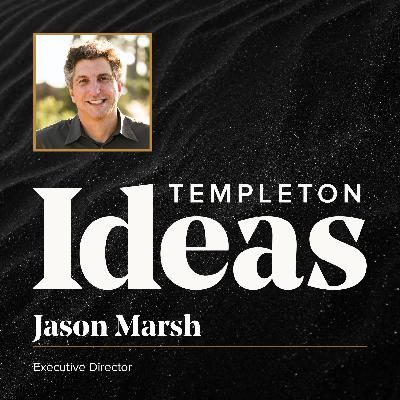
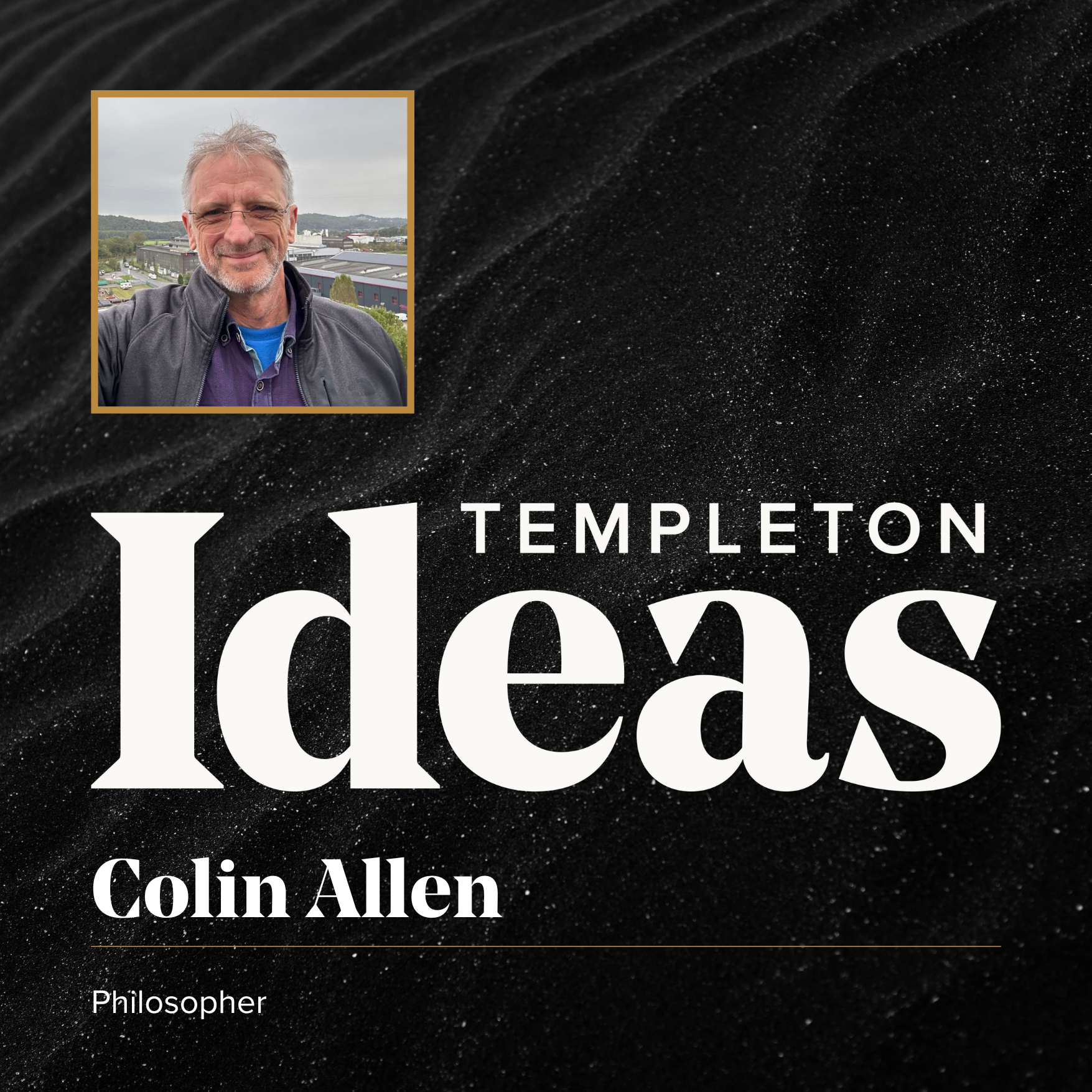
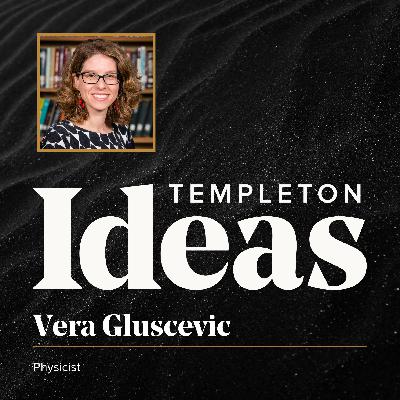
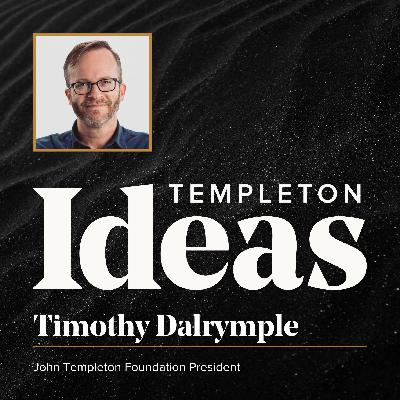

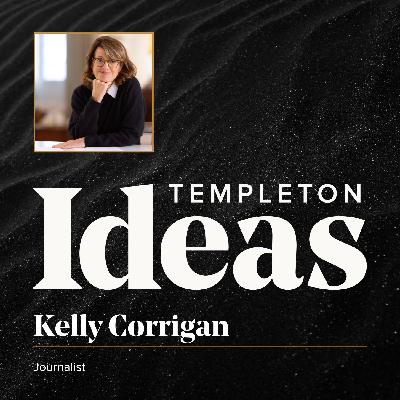
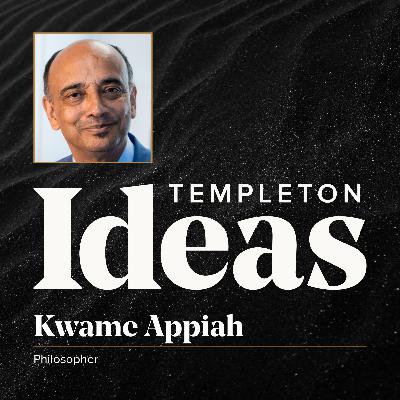
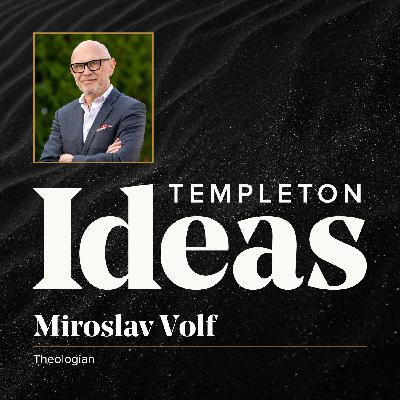
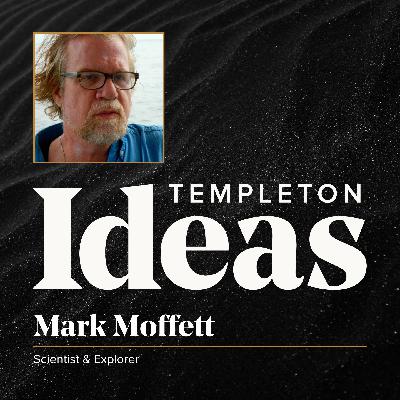
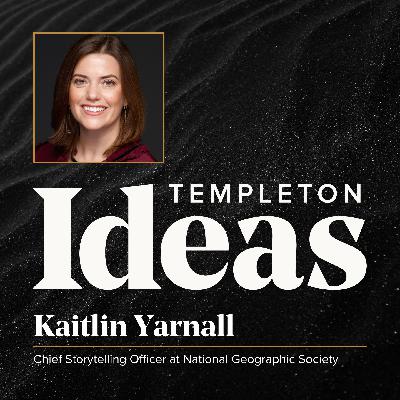
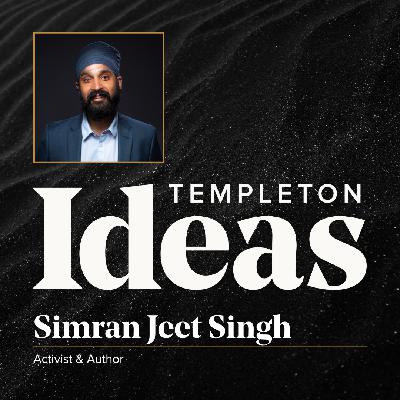
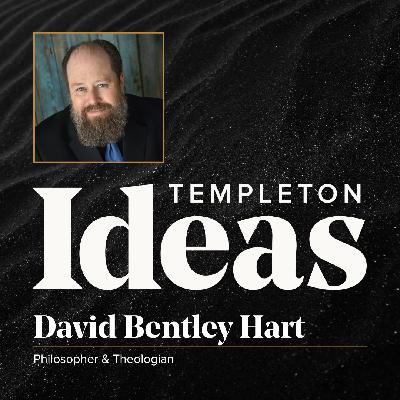
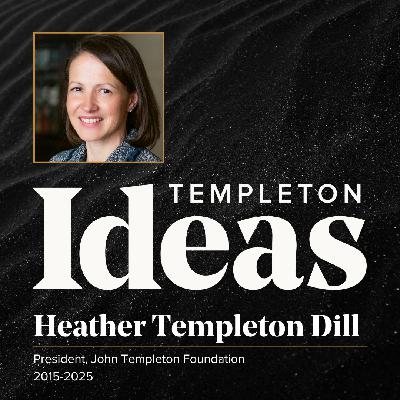









always love your neighbors as you love yourself
this is a very informative and interesting podcast!!! thanks for being here for me! ❣️
The website is user-friendly , with all necessary information easily accessible. https://billmepco.pk
They really made me feel confident in my choices.https://affordablecabinetsofcapecod.com/
They really made me feel confident in my choices. https://affordablecabinetsofcapecod.com/
It is like a fascinating podcast with some incredible guests! Excited to dive into these thought-provoking conversations https://armchampionshipbelts.com/collections/fantasy-football-belts/.
hi
An award-winning podcast from Google about the unseen world of data centers. https://greatmauilandgrabbook.com
that's great 👍
Hi I am a professional podcast presenter. I have more than 4+ years of experience in this format.I have a large team worldwide. I always like to work. In my experience I try to do good work for all clients.So please check my service. Thank you! Twitter username and handle And ID👇👇👇 @manik2233m